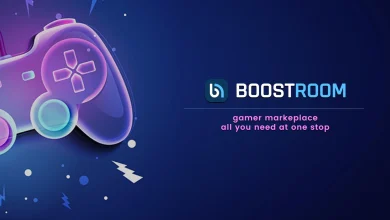Bclubs: A Space for Digital Activism

In the evolving world of digital activism, Bclubs represent a significant evolution in how online communities are utilized for social change. These digital spaces, which focus on creating and supporting collective action, have emerged as powerful tools for political engagement, social justice initiatives, and digital advocacy. Through their dynamic platforms, bclub are revolutionizing how people come together to amplify their voices and take meaningful action in the digital age.
Understanding Bclubs
Bclubs can be defined as online communities, or clubs, that leverage digital tools and platforms to organize, mobilize, and engage people in activism. They provide members with a platform to discuss issues, share ideas, collaborate on campaigns, and most importantly, create change. In essence, Bclubs operate like traditional activist groups, but they exist entirely in the digital sphere, often transcending geographical and political boundaries. These online clubs serve as hubs for like-minded individuals to unite their efforts toward common goals.
Bclubs typically use a variety of social media tools, online forums, messaging apps, and dedicated platforms to facilitate communication and collaboration. Their mission often revolves around specific causes, ranging from climate change and racial justice to human rights and gender equality. The nature of these communities allows for rapid mobilization, global reach, and the flexibility to adapt to fast-moving social issues.
The Rise of Digital Activism
The advent of social media and digital communication technologies has revolutionized the way activists and communities organize. Digital activism, also referred to as “hashtag activism” or “slacktivism,” has gained popularity in recent years, especially with the rise of platforms such as Twitter, Facebook, Instagram, and TikTok. These platforms enable individuals to spread messages quickly, rally support, and even directly challenge powerful institutions.
Bclubs have capitalized on the potential of digital spaces to bring people together for collective action. With the accessibility and anonymity provided by the internet, Bclubs can operate freely and openly without the restrictions often placed on physical gatherings. For marginalized or oppressed communities, Bclubs provide a vital space for them to raise their voices without fear of censorship or retaliation. For instance, activists advocating for racial justice or LGBTQ+ rights may use Bclubs as a safe haven for discussions, resources, and support networks.
The Power of Digital Communities in Activism
Bclubs are redefining the way activism is practiced in the digital age. Here are some key ways in which these spaces are reshaping digital activism:
1. Amplifying Voices of Marginalized Communities
Bclubs give a platform to those who may not have access to mainstream media or traditional activist channels. Historically, marginalized communities have faced significant barriers to participating in activism due to social, economic, and political constraints. Bclubs eliminate these barriers by providing an inclusive, online space where anyone with internet access can participate. This is especially vital for groups like indigenous populations, racial minorities, or people living in regions with limited freedom of expression.
For example, during the Black Lives Matter movement, online platforms and Bclubs played a pivotal role in amplifying the voices of activists, organizers, and those affected by racial violence. Social media hashtags like #BlackLivesMatter served as rallying cries, and Bclubs provided a space for individuals to collaborate on global campaigns and support each other in their activism.
2. Creating a Collaborative Environment
Unlike traditional activism, which often involves face-to-face interactions and physical organization, Bclubs foster a virtual environment where people can share ideas, discuss strategies, and develop campaigns. These spaces encourage collaboration, making it easier for activists to organize events, share resources, and strategize for collective actions.
For instance, campaigns like the global “Fridays for Future” climate strike, initiated by Swedish activist Greta Thunberg, saw support from digital communities worldwide. Bclubs helped spread the movement by creating online spaces for activists to organize virtual strikes, share educational content, and mobilize people to take action.
3. Educating and Raising Awareness
One of the most powerful aspects of Bclubs is their ability to educate people on complex social, political, and environmental issues. Members can access resources such as articles, videos, webinars, and podcasts that raise awareness about the causes they support. Through these educational materials, Bclubs play an important role in informing their members about pressing global challenges, such as climate change, inequality, and human rights violations.
Bclubs provide a venue for expert opinions, firsthand accounts, and academic research, making it easier for people to understand the depth of the issues they are fighting for. Additionally, Bclubs can act as spaces for people to learn about different perspectives, expanding the scope of conversations beyond the confines of their personal experiences or geographic location.
4. Organizing Events and Campaigns
Bclubs are instrumental in organizing virtual and in-person events that further the goals of digital activism. These events may include protests, petition drives, crowdfunding efforts, or awareness-raising activities. Thanks to the digital infrastructure of Bclubs, planning and executing these events can be done with remarkable speed and efficiency.
A prime example of this is the global “Me Too” movement, where survivors of sexual harassment and assault shared their stories online and created a space for other survivors to do the same. The digital space allowed the movement to gain momentum, mobilize people around the world, and lead to tangible changes in policies and perceptions.
5. Holding Institutions Accountable
Digital activism has a unique ability to challenge institutions and hold them accountable for their actions. Bclubs have been used to organize campaigns against corporations, governments, and even celebrities who engage in unethical or harmful behavior. By amplifying voices and spreading information, Bclubs can pressure institutions to change, as seen in campaigns like #DeleteFacebook, which sought to hold the social media giant accountable for its role in the spread of misinformation.
Bclubs offer the tools necessary to engage in online petitions, create hashtags, and coordinate digital protests, all of which exert pressure on entities that have historically been difficult to challenge. The global reach of these campaigns can bring attention to issues that would otherwise remain hidden.
Challenges Faced by Bclubs
While Bclubs have proven to be a valuable tool for digital activism, they also face several challenges that need to be addressed to ensure their effectiveness and sustainability.
1. Online Censorship and Privacy Concerns
Online activism is not without risks, and Bclubs may face censorship or surveillance, especially in countries with restrictive internet policies. Activists can be tracked, and personal information may be exposed or misused by authoritarian governments or malicious actors. Therefore, it is essential for Bclubs to adopt secure platforms and encryption technologies to protect the privacy of their members.
2. Digital Divide
The digital divide—the gap between those who have access to digital technology and those who do not—remains a significant issue in global activism. Although Bclubs provide a space for digital engagement, people without reliable internet access or the necessary technology are often excluded from these online movements. To address this, activists must find ways to ensure that digital activism reaches broader, more diverse populations.
3. Online Echo Chambers
While Bclubs promote collaboration, they also run the risk of becoming echo chambers, where members are exposed only to ideas that reinforce their own beliefs. This can limit the ability of bclub login to foster meaningful dialogue and engagement with people outside of their immediate circles. To mitigate this issue, Bclubs need to prioritize open, respectful discussions and encourage members to engage with opposing viewpoints.
Conclusion
Bclubs represent a new frontier for digital activism, empowering individuals to come together, amplify their voices, and fight for change in a rapidly evolving digital world. These communities provide a space for marginalized voices, foster collaboration, and hold institutions accountable. While challenges like online censorship, digital access, and echo chambers remain, Bclubs offer a promising model for activism in the digital age. As digital tools continue to advance and social movements grow in strength and visibility, Bclubs will undoubtedly play an increasingly important role in shaping the future of activism and social change.




